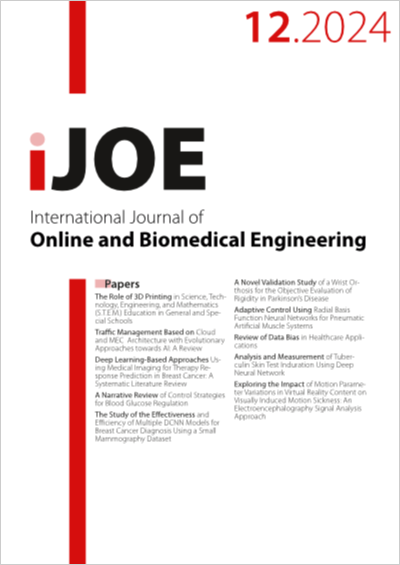The Study of the Effectiveness and Efficiency of Multiple DCNN Models for Breast Cancer Diagnosis Using a Small Mammography Dataset
DOI:
https://doi.org/10.3991/ijoe.v20i12.49739Keywords:
Breast Cancer, Xception, VGG-16, VGG-19, ResNet50, MobileNetV2, InceptionResNetV2, Inception v3, DenseNet121, Deep convolutional Neural Networks, Classification, Transfer Learning, Effectiveness, EfficiencyAbstract
Breast cancer (BC), the most prevalent cancer worldwide, poses a significant threat to women’s health, often resulting in mortality. Early intervention is crucial for reducing mortality rates and improving recovery. Mammography plays a pivotal role in early detection through high-resolution imaging. Various classification techniques, including classical and deep learning (DL) methods, assist in diagnosing BC. Convolutional neural networks (CNN)-based classification with transfer learning enhances efficiency and accuracy, especially with limited datasets. This study evaluates the performance of different pretrained deep CNN architectures in classifying pathological mammography scans from the Mini-MIAS dataset. The results show that Xception, VGG16, VGG19, and MobileNetV2 achieve the highest accuracy (97%), with VGG19 demonstrating the fastest prediction speed (0.53 s).
Downloads
Published
How to Cite
Issue
Section
License
Copyright (c) 2024 Nourane Laaffat, Ahmad Outfarouin, Walid Bouarifi, Abdelilah Jraifi

This work is licensed under a Creative Commons Attribution 4.0 International License.



